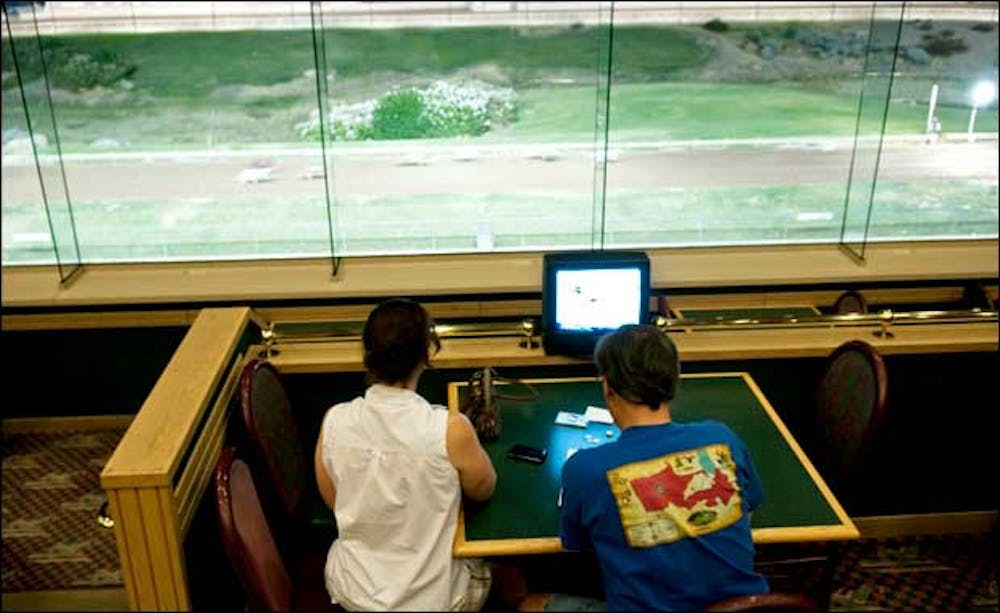Phoenix will lose one of its landmark racing facilities as a result of a tough economy and even tougher competition, said Daniel A Luciano, president and general manager of American Greyhound Racing, Inc.
The Phoenix Greyhound Park will no longer have live racing as of Dec. 19.
The park has been a part of the Valley for more than 50 years and can still reach crowds of 1,000 people during weekends in the winter, but weekdays usually draw crowds of less than 100, Luciano said.
Public relations senior Jesse Mock, who has attended races several times, said he’s disappointed the park is shutting down.
“The dog park is a good time every time,” he said. “It doesn’t matter if you win or lose, you always have fun.”
Instead he’ll go to Turf Paradise, a horse racing track in north Phoenix, he said.
“I like watching the dogs better, though,” Mock said, suggesting that Arizonans visit the park before it closes.
“There is nothing like the feeling of your dog winning,” he said. “You could bet a dollar and it still would be exciting.”
The building itself appears to be in great shape. Built in 1987 to improve the park, it still contains its old school, stylish appeal, but the lack of attendance indicates that the end is near.
The few fans in attendance on Wednesday night continued to cheer for the dog of their choice.
“There is a core group of people that really like it,” Luciano said. “They have fun.”
He credits the decrease in business to the impact of more casinos in the area.
“People like casino gaming,” he said. “They like the quick, instantaneous action, whereas it is 15 minutes between a race.”
The indoor-smoking ban also hurt business in the racing park, unlike casinos where smoking is still allowed, he said.
Jerry Wagner, of Scottsdale, who visits the park twice a month on average, also said competition with casinos is an issue for the park because people enjoy the instant gratification.
He said he enjoys the races more than the casinos because of the statistical aspect and the “brain power” needed to place wagers.
There’s also a higher probability of winning at the parks, he said.
“[For] every dog race there is a winner,” he said. “That doesn’t happen when you pull the arm on a slot machine.”
Wagner, who was at the track with his family, said he is disappointed to see it close.
“We’re heartbroken,” he said. “It would be a disappointment not to have another entertainment option.”
Luciano said the sagging economy has hurt business anywhere from 15 to 30 percent since October 2008.
“The days of filling a facility that holds ten to twenty thousand people for racing are gone,” he said.
The facility will be maintained after it closes, he said, in case the park can reopen when the economy improves.
“There are some things that could help us, but it is kind of out of our control,” he said.
Luciano said the dogs will be moved around to other racing facilities and some will be adopted.
“We will all miss being here,” he said.




